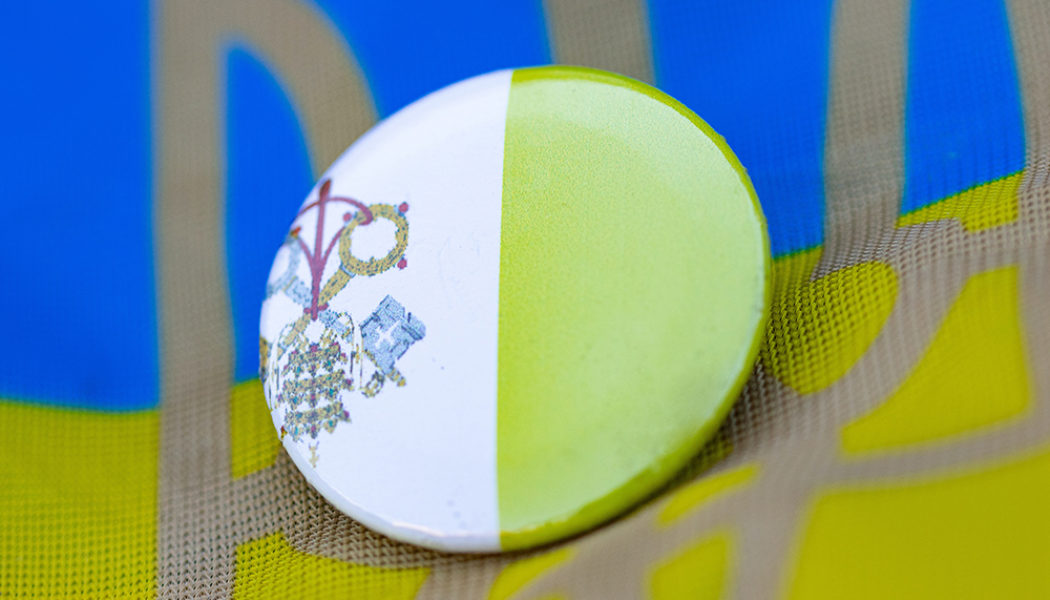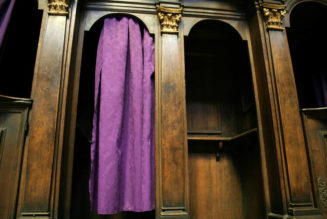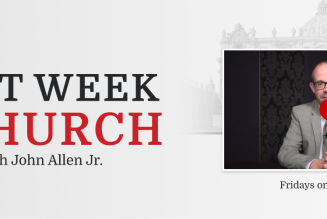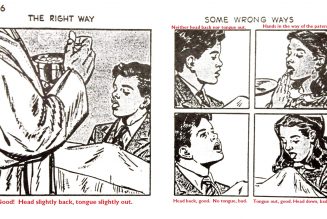
A few days after Cardinal Matteo Zuppi’s appointment as head of a Vatican “peace mission” to “help ease tensions in the conflict in Ukraine” (as Vatican News put it), a startling picture appeared on p. A1 of the Washington Post. That graphic image illustrated just how daunting a task Cardinal Zuppi and the Vatican Secretariat of State face. For it was a satellite photo of Bakhmut, a city in eastern Ukraine under relentless Russian assault for months, and it depicted urban devastation comparable to that of Berlin in April 1945.
Add to this the Russian kidnapping of Ukrainian children, the rapes, murders, and other war crimes committed by Russian troops, and the ongoing, indiscriminate Russian missile and drone attacks on civilian targets in Ukraine, and any serious analysis of the war leads to one conclusion: This is not a symmetrical “conflict” in which mediation between contending parties is possible (as it was in Mozambique, where Zuppi and the Sant’Egidio Community worked to end a civil war). This is a completely asymmetrical situation, in which a genocidal aggressor is being resisted by a free people determined to defend their nation and its sovereignty.
Put simply: If Russia loses, it loses a war. If Ukraine loses, it loses Ukraine.
It is not clear that this fundamental asymmetry and its implications for a post-war peace have been fully grasped in the Holy See. Working in Rome earlier this month, I heard echoes of Vatican concerns that Ukrainian President Volodymyr Zelensky’s demand for a withdrawal of all Russian forces from occupied Ukrainian territory would make a negotiated settlement difficult. That analysis seems to miss the crucial political point, which is that President Zelensky, for all his eloquence, is following the will of his people, not egging them on to unreasonable demands. Similar echoes were heard of Vatican concerns about the allegedly extreme positions on the war being taken by Poland and the Baltic states — as if there weren’t reasonable concerns that any form of Russian victory in Ukraine would put those countries (and Moldova) next on Vladimir Putin’s reverse-the-verdict-of-the-Cold-War shopping list.
Certain Vatican circles also seem determined to maintain ecumenical contacts with the Russian Orthodox Church, despite the obvious fact that that Church’s leadership is owned lock, stock and barrel by the Kremlin — thus creating another asymmetry, in which Catholic churchmen “dialogue” with agents of Russian state power and Russian security service assets who appear under the guise of churchmen. This solicitude extends beyond Patriarch Kirill of Moscow and All Rus’ (a KGB operative at the World Council of Churches headquarters in Geneva in his youth) and his new “foreign minister,” Metropolitan Anthony, who is wholly a creation of Kirill’s. It continues to embrace Anthony’s predecessor, Metropolitan Hilarion, now deployed to Budapest, who took the occasion of his 20-minute visit with Pope Francis during the recent papal visit to Hungary to post a YouTube video promoting the obscene fiction that Putin’s Russia is a defender of Christian civilization.
None of this bodes well for a Vatican “peace mission.” It even raises the possibility that Vatican diplomacy, absent a recognition of the basic moral and political asymmetries in this brutal war, might make matters worse, with a misconceived and ill-executed “peace mission” contributing to the lie that there are equivalent parties in this conflict who must be brought together in a “mediation.” That falsification of reality, underwritten by what some will perceive as the moral authority of the Holy See, could undercut Western resolve in supporting the aggrieved party in this conflict — Ukraine — for the sake of achieving what would inevitably be a temporary peace with the undoubted aggressor: Russia.
If this is not to happen, certain moves by the Vatican seem imperative.
– Advertisement –
First, the highest authorities of the Church should make clear that they understand the existential character of the conflict: This is not a symmetrical contest between morally and politically equal “actors.” Rather, Russia’s war on Ukraine is an unwarranted, illegal and genocidal aggression, against which Ukraine is engaging in necessary and legitimate self-defense.
Second, the Vatican should suspend all formal ecumenical contacts with Russian Orthodoxy until such time as the Patriarchate of Moscow demonstrates that it is an ecclesial body, not an instrument of Russian state power.
If Russia, in response to such clarifications (or for any other reason), impedes or refuses to cooperate with the Vatican’s welcome humanitarian efforts to return Ukrainian children to Ukraine, the essential character of Putin’s aggression will become undeniable. So will the prospects for a Holy See “peace mission” that can actually contribute to peacemaking.
George Weigel is an independent columnist whose weekly column is syndicated by the Archdiocese of Denver. The opinions and viewpoints expressed by Mr. Weigel therein are his alone and do not necessarily reflect those of the Archdiocese of Denver or the bishops of Denver.







